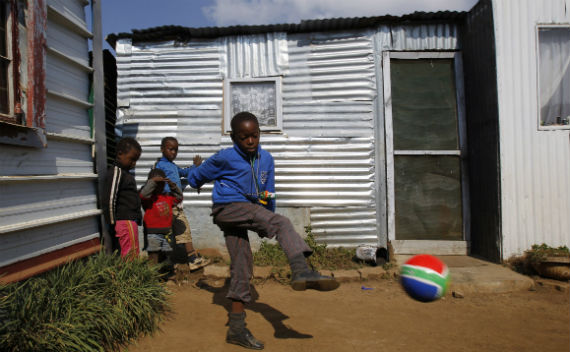Land Grabs in South Africa Pale Reflection of Zimbabwe
More on:

Hundreds of people invaded and seized about 141 acres of land belonging to the Uniting Reformed Church outside of Mthatha in the Eastern Cape. According to press reports, they’ve divided the land and are selling it for seven thousand rand (US$860) per parcel. Jonas Ntsabile, a member of the invaders’ committee, is quoted as saying that the community is taking back land “taken by force and grabbed by missionaries. People have taken the decision to go back and occupy their forefathers’ land as beneficiaries.”
The Uniting Reformed Church was created in 1994 by the merger of white, black, and ‘coloured’ (mix-race) Dutch Reformed churches that developed during the colonial and apartheid eras. The church applied to the court for an eviction order that was served October 28 on some of the invaders.
The area would seem to be hospitable to such radical actions. The seized track is outside of Mthatha, formerly known as Umtata and the capitol of the apartheid-era “self-governing homeland” of Transkei. The Eastern Cape used to be a center of ANC strength and activism. (Now, its primary base is in Johannesburg and environs.) The University Of Fort Hare, probably the pre-eminent black university during the apartheid era, is located there, and there is a branch in Mthatha. Nelson Mandela’s ancestral home is not far from Mthatha.
Shades of land grabs from white farmers in Zimbabwe by Mugabe’s thugs? Not really, though the invaders’ rhetoric recalls it and that of African National Congress Youth League Leader Julius Malema.
Some differences: this incident appears to have been locally instigated rather than encouraged by the governing ANC. Perhaps more important, the rule of law remains preeminent in South Africa. The judiciary, known to be independent and active, promptly issued an eviction order that has been served.
Nevertheless, this episode highlights the unresolved land issues in South Africa, where land reform has proceeded very slowly. The division of the land into small plots indicates that the invaders intended to build houses on it, rather than farm it. Land for poor blacks is in short supply outside South African cities, and squatter settlements have existed since apartheid times.
More on:
 Online Store
Online Store